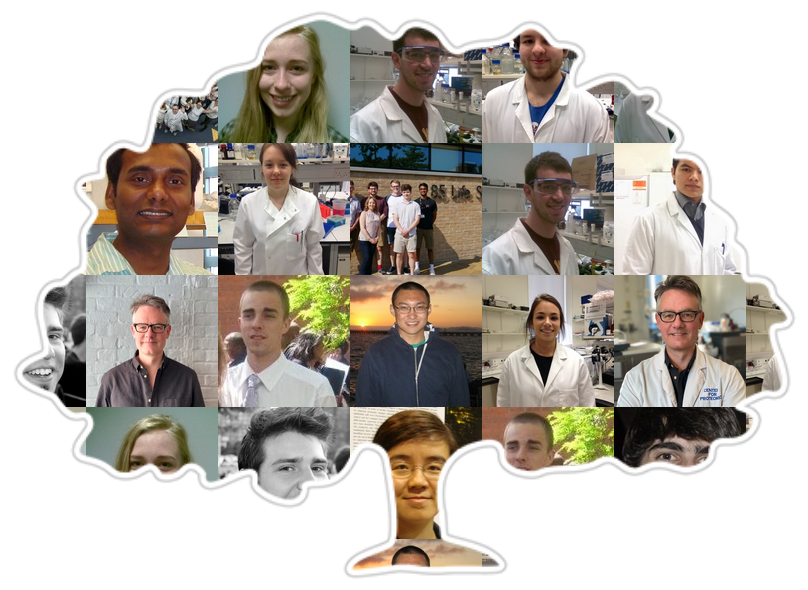
Dr Rob Ewing A love of computer programming got me interested in bioinformatics following my D.Phil in plant molecular genetics. I worked as a postdoc in the CNRS in France and at the Carnegie Institute/Stanford University, developing computational methods to analyze large-scale ‘omics datasets. I also spent several years applying these techniques in the biotech sector, working at Incyte Genomics in California and at MDS Proteomics in Toronto. Current scientific interests are focused on using proteomic and computational methods to map protein-protein interactions networks relevant to human disease and development
Lab alumni (University of Southampton)
Ben Draper (2018-2021) MSci and summer intern student working on large-scale analysis of gene dependency data in colorectal cancer
Ben Ward (2020-2021) MRes student working on mechanisms of Zika-induced oncolysis in brain tumours
James Coburn (2020-2021) MRes student working on meta-analysis of COVID-related gene-expression
Joe Bell (2017-2021) Ph.D student working on signalling and protein-protein interactions in idiopathic pulmonary fibrosis
Harry Leafe (2019-2020) MRes student working on machine-learning approaches to reconstruct Wnt signaling network
Sara Weston (2019-2020) MSci student working on analysis of knock-out proteomics data in colorectal cancer
Emily Bowler (2014-2018) Ph.D student working on mapping oncoprotein interaction networks
Francisco Martinez Garcia (2016-2017) Advanced MRes student studying Wnt signaling networks in colorectal cancer
Georgina Abraham (2014-2015) MBiochem student working on the LRR and PDZ domain family of proteins
Martyn Webb (2014-2015) BSc Biomedical Science student studying the Exostosin protein family
Dr Mate Ravasz (2014-2015). Postdoctoral scientist working on using interaction proteomics to map protein interaction networks in colorectal cancer.
Doug Mbang (2013-2014). BSc Biomedical Science student. Understanding the effects of an oncoprotein stabilizing mutation on the transcriptome of colorectal cancer cells.
Alex Mclaughlin (2013-2014). MSc Biomedical Science student. Understanding the effects of an oncoprotein stabilizing mutation on the transcriptome of colorectal cancer cells.
Lab alumni (Case Western Reserve University)
Dr Jing Song (2008-2013). Affinity purification/mass spectrometry (AP-MS) platform for studying protein networks and complexes in colorectal cancer.
Dr Sudipto Saha (2009-2012). Bioinformatics and computational analysis of protein interaction networks Current position: Ramalingaswami Fellow working on to data-mining and discovery from large-scale ‘omics data
Elena Svenson (2011) [Systems biology major] Worked on computational techniques for integrating mutations with signaling pathways
Prapan Shewinvanakitkul (2011). [Computer scientist] Constructed a virtual environment for teaching computational proteomics.
Alex Galante (2009-2010). Built a computational model of the WNT-signaling network to identify novel regulators of WNT signaling. Current position: Medical student, School of Medicine, Case Western Reserve University.
Theodore Roman (2009-2010) [Computer Science major]. Built a computational model of the WNT-signaling network to identify novel regulators of WNT signaling (co-mentored within the interdisciplinary NSF RIBMS program). Current position: Ph.D candidate, School of Computer Science, Carnegie Mellon University.
Mitchell Murphy (2010-2011) [Computer science major]. Developed computational techniques and tools for development of an integrated map of the Wnt signaling network.
Tim Yang (2008) [Summer on the Cuyahoga program student]. Developed metrics for assessing the confidence of protein-protein interactions. Current position: Ph.D candidate, Operations Research, University of California, Berkeley.